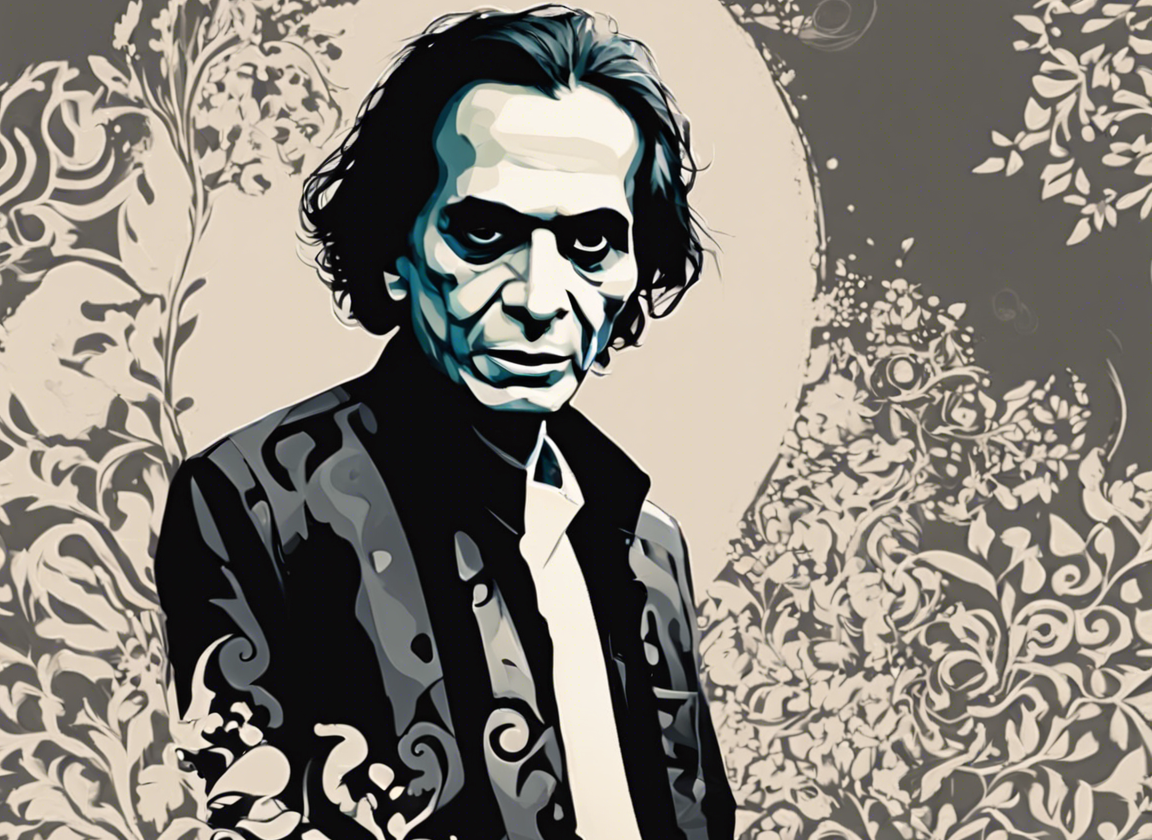The Enduring Legacy of Jaun Elia

Introduction
Jaun Elia, an enigmatic poet, philosopher, and scholar, left an indelible mark on Urdu literature with his profound and introspective works. Despite facing myriad personal struggles and challenges throughout his life, Elia’s literary genius shone through in his poetry, essays, and translations. His unique style, marked by a fusion of classical and modern influences, continues to captivate readers and scholars alike, making him a timeless figure in the world of Urdu literature.
Early Life and Influences
Born in 1931 in Amroha, India, Jaun Elia was exposed to profound literary influences from a young age. His father, Allama Shafiq Hasnain Elia, was a renowned scholar and poet, whose love for literature deeply impacted Jaun’s own artistic pursuits. Elia’s early education in Arabic, Persian, and Urdu laid the foundation for his later poetic brilliance, as he drew upon a rich tapestry of linguistic and cultural traditions in his work.
Literary Style and Themes
Jaun Elia’s poetry is characterized by its raw emotional depth, philosophical musings, and profound existential themes. His verses often grapple with the complexities of love, loss, time, and identity, inviting readers to reflect on the deeper mysteries of life. Elia’s use of symbolism, metaphor, and imagery adds layers of meaning to his poetry, inviting interpretations that are both personal and universal in nature.
Notable Works
Some of Jaun Elia’s most celebrated works include Shayad, Gumaan, and Yaani, all of which showcase his poetic mastery and intellectual acuity. Through these collections, Elia explores themes of mortality, spirituality, and the human condition, inviting readers to confront their own existential dilemmas and search for meaning in a chaotic world.
Legacy and Influence
Despite facing personal challenges, including battles with depression and financial hardship, Jaun Elia’s literary legacy endures as a testament to the power of art to transcend adversity. His influence extends beyond the realm of poetry, as he was also a noted translator, critic, and essayist. Elia’s unique perspective on life and literature continues to inspire generations of writers, artists, and intellectuals, cementing his status as a towering figure in Urdu literature.
Jaun Elia as a Cultural Icon
In addition to his literary contributions, Jaun Elia remains a beloved cultural icon in South Asia, revered for his intellectual brilliance and humanitarian values. His public lectures, TV appearances, and interviews showcased his wit, charm, and incisive intellect, endearing him to fans across generations. Elia’s ability to connect with audiences on a personal level, coupled with his unapologetic embrace of life’s complexities, has made him a beloved figure in the hearts of many.
Influence on Contemporary Literature
Jaun Elia’s influence on contemporary literature extends far beyond the boundaries of Urdu poetry. Writers, scholars, and critics continue to study his work, unpacking its layers of meaning and exploring its relevance to a modern audience. Elia’s willingness to confront taboo subjects, challenge societal norms, and push the boundaries of artistic expression has paved the way for a new generation of voices to emerge in Urdu literature, carrying forward his legacy of innovation and introspection.
Conclusion
In conclusion, Jaun Elia’s enduring legacy as a poet, philosopher, and scholar is a testament to the power of art to transcend time and space. His profound insights into the human experience, coupled with his exquisite craftsmanship and intellectual rigor, have secured his place as one of the most influential figures in Urdu literature. As readers continue to grapple with the profound themes and timeless wisdom of his poetry, Jaun Elia’s voice remains a guiding light in an ever-changing world, offering solace, inspiration, and contemplation to all who seek it.
FAQs
1. Who was Jaun Elia?
Jaun Elia was a renowned Urdu poet, philosopher, and scholar known for his profound and introspective works that explored themes of love, loss, time, and identity.
2. What were some of Jaun Elia’s notable works?
Some of Jaun Elia’s most celebrated works include Shayad, Gumaan, and Yaani, all of which showcase his poetic mastery and intellectual acuity.
3. What was Jaun Elia’s literary style?
Jaun Elia’s poetry is characterized by its raw emotional depth, philosophical musings, and profound existential themes. He often used symbolism, metaphor, and imagery to add layers of meaning to his poetry.
4. What was Jaun Elia’s influence on contemporary literature?
Jaun Elia’s influence on contemporary literature extends beyond Urdu poetry, inspiring a new generation of writers to confront taboo subjects, challenge societal norms, and push the boundaries of artistic expression.
5. How has Jaun Elia’s legacy endured over time?
Despite facing personal challenges, Jaun Elia’s literary legacy continues to inspire generations of writers, artists, and intellectuals. His unique perspective on life and literature remains relevant and thought-provoking in today’s world.